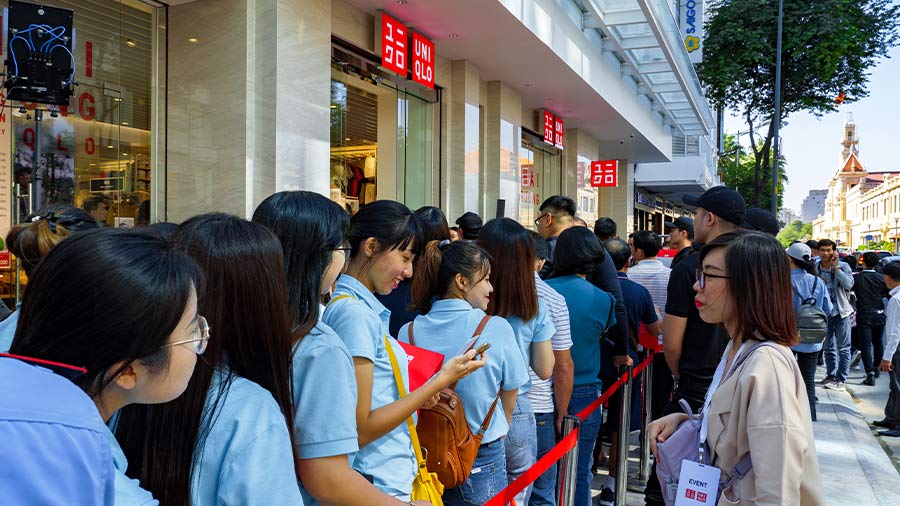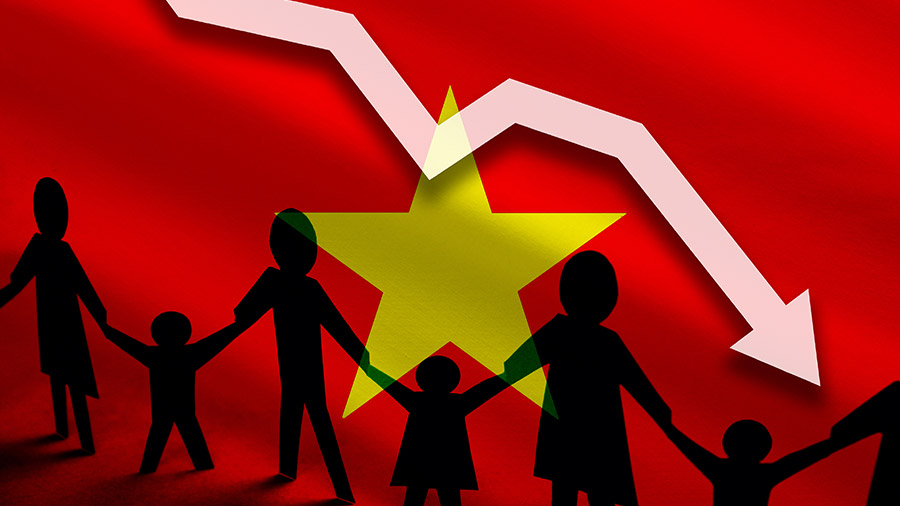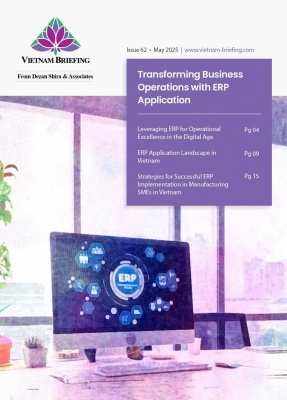Vietnam Provincial Competitiveness Index: Key Findings from the 2024 Report
The 2024 Vietnam Provincial Competitiveness Index Report (“2024 PCI Report”) offers comprehensive insights into the evolving business landscape across Vietnam, highlighting how shifts in economic governance are impacting both domestic and foreign-invested enterprises.
Developed by the Vietnam Chamber of Commerce and Industry (VCCI) in collaboration with the United States Agency for International Development (USAID), the PCI report draws on extensive survey data from thousands of firms to assess key areas of provincial economic governance.
This year’s report reveals significant improvements in provincial competitiveness, with notable advancements in transparency, labor quality, and market entry procedures. However, challenges remain, including rising informal costs, persistent administrative burdens, and difficulties accessing land. Additionally, the report underscores a growing shift toward higher-value industries, increased domestic sales, and greater optimism among foreign-invested enterprises (FIEs) despite global economic uncertainties.
In this article, we unpack the key findings of the 2024 PCI report, examining the top-performing provinces, emerging business trends, and persistent challenges that continue to shape Vietnam’s business environment.
Learn more about the 2023 PCI Report: Vietnam Releases the 2023 PCI-PGI Report: Key Results
Key findings
The headline finding of the report is a sustained improvement in provincial economic governance, with the median province’s PCI score rising to 67.67 points – up more than one point from 2023 – and the core PCI score reaching 68.18 points, marking a steady upward trend since 2016.
The PCI score ranks Vietnam’s 63 provinces based on economic governance areas that affect private sector development. The overall index score is based on ten subindices evaluating the following criteria:
- Low entry costs for business start-ups.
- Easy access to land and security of business premises.
- Transparent business environment and equitable business information.
- Minimal informal charges for businesses.
- Limited bureaucratic procedures and inspections.
- Minimal policy biases toward state, foreign, or connected firms.
- Proactive and creative provincial leadership in addressing business challenges.
- High-quality business support services.
- Effective labor training policies.
- Fair and effective legal procedures for dispute resolution and maintaining law and order.
In 2024, the province with the highest PCI score was the northern city of Hai Phong, a major manufacturing and logistics hub. This is the first time this city has come to the top of the ranking, achieving a score of 74.84. According to the report, its success stems from concerted improvements to the business and investment environment, including streamlining of administrative procedures, promotion of direct investment, administrative reforms, and development of industrial zones. Hai Phong improves in seven out of the 10 governance criteria, namely market entry, land access, transparency, informal charges, fair competition, proactivity of the local government, and legal institutions and order.
The northeastern coastal province of Quang Ninh secured second place with a score of 73.20, an increase of 1.95 points since 2023. Quang Ninh improved in five out of ten PCI governance areas in 2024, marking its twelfth consecutive year in the top five provinces and cities for provincial competitiveness.
Top 10 Provinces and Cities by PCI Score in 2024
- Hai Phong – 74.84
- Quang Ninh – 73.20
- Long An – 72.64
- Bac Giang – 71.24
- BRVT – 71.17
- Hue City – 71.13
- Hau Giang – 70.54
- Phu Tho – 70.35
- Dong Thap – 70.35
- Hung Yen – 70.18
All 63 provinces and cities showed positive changes in their average PCI scores, with Bac Giang leading in core PCI improvement, followed by Long An, Thanh Hoa, Lai Chau, and Dak Nong, underscoring their transformation into increasingly attractive investment destinations.
Top 10 Provinces and Cities with Improved PCI Scores* in 2024:
- Bac Giang
- Long An
- Thanh Hoa
- Lai Chau
- Dak Nong
- Quang Ninh
- Binh Phuoc
- Tien Giang
- Dien Bien
- Hai Duong
*Average annual change
Key improvements to the business environment in Vietnam
Improvements to labor quality
The report found that in 2024, there was a notable increase in businesses positively rating general and vocational education in their provinces, with 68 percent and 63 percent of respondents expressing satisfaction, respectively. Additionally, 54 percent of firms reported that the local workforce fully or mostly met their employment needs, up from 47 percent in 2023. Companies also reported higher success rates in recruiting unskilled labor (63 percent), technical staff (37 percent), and management personnel (30 percent), reflecting overall improvements in labor quality and availability.
Better transparency
Transparency indicators improved in 2024, with businesses reporting higher scores for access to planning and legal documents, reaching 3.11 and 3.23, the highest since 2006. Only 31 percent of firms said that “connections” were necessary to obtain provincial documents, down from 61 percent in 2021, the lowest level recorded. Enhanced information access also contributed to higher predictability in compliance with regulations, with 40 percent and 39 percent of firms noting improved predictability in central and local legal changes, respectively. The report noted that these gains are likely supported by ongoing government e-governance initiatives such as the National Digital Transformation Program.
More favorable market entry procedures
Market entry procedures continued to improve, with business registration now taking around seven days and amendments taking six days, significantly down from a month two decades ago. In 2024, 93 percent of firms noted transparency in registration procedures, 91 percent acknowledged clear guidance, and 86 percent praised staff expertise and friendliness. However, fewer than 50 percent of firms were satisfied with conditional business licensing procedures, indicating that further reforms are needed to streamline market entry processes.
Legal institutions and public order
The law and security subindex, which measures private enterprises’ trust in provincial court systems and judicial processes, remained strong in 2024, with 91 percent of firms in the median province expressing confidence in the legal system’s ability to protect issues like copyright and contract enforcement. Additionally, 93 percent of businesses stated that provincial courts handled economic cases fairly, 88 percent reported prompt resolutions, and 89 percent acknowledged the effectiveness of legal aid. Furthermore, 83 percent of firms described local security conditions as good, up from the 77 to 78 percent range in the previous three years, indicating continued stability in the legal and security environment.
Business optimism
Business optimism improved in 2024, with 33 percent of firms planning to expand within two years, up from 27 percent in 2023, though still below the 50 percent recorded pre-COVID. Medium and large enterprises exhibited the highest optimism, with 46 percent of companies with a scale of VND 50 billion to VND 200 billion (US$1.9 million to US$7.7 million) and 56 percent of those over VND 200 billion planning expansions, up from 38 percent and 39 percent in 2023, respectively. Meanwhile, 27 percent of micro enterprises (those with a scale of under VND 3 billion (US$115,696) said they intended to expand, up five percent from 2023.
The top industries for planned expansion were:
- Chemicals (47 percent)
- Agriculture, forestry, fishery (43 percent)
- Food processing (40 percent)
- Metal products (39 percent)
- Healthcare-education-administration (38 percent)
- Wood products (37 percent)
- Apparel (37 percent)
- Information technology (35 percent)
- Wholesale, retail, and motorbike repair (34 percent)
- Construction (33 percent)
According to the report, the uptick in planned expansion in these industries is driven primarily by increasing domestic demand, foreign investment, and strategic positioning within global supply chains, as well as government support, competitive labor costs, and favorable trade agreements.
The provinces with the highest expansion intentions were Bac Lieu (53 percent), Hung Yen (50 percent), Bac Giang (47 percent), Ba Ria-Vung Tau (46 percent), and Hoa Binh (46 percent), reflecting targeted industrial development and strategic investment attraction efforts.
It’s important to note that the report advises cautious interpretation of these findings, as changes in US tariff policies and other unforeseen global developments since the survey’s conclusion in December 2024 may impact business expansion plans, in particular in export-driven sectors and provinces.
Challenges faced by companies in Vietnam
Companies in Vietnam continue to navigate a variety of challenges that affect their operations and growth prospects. These obstacles include financial access, difficulties in acquiring customers, market downturns, land access issues, and the return of informal charges. While some progress has been made, such as the adoption of digital administrative processes, persistent issues like bureaucratic inefficiencies and increasing informal costs remain significant hurdles for businesses.
The top five obstacles reported by businesses are accessing banks or credit (54 percent), finding customers (49 percent), market downturns (38 percent), finding business partners (20 percent), and getting suitable personnel (20 percent).
Decreasing proactivity of provincial governments
The proactivity of local government officials appears to be on the decline, with the average proactivity score in 2024 dropping to 6.29 from 6.68 in 2023. A smaller percentage of businesses reported that provincial authorities were flexible and supportive within the legal framework to create a favorable business environment, falling from 86 percent in 2021 to just 77 percent in 2024.
Furthermore, significantly fewer businesses thought that the Provincial People’s Committee, the local executive arm of government, was dynamic and creative in addressing new issues than in 2023, while more businesses noted that their provincial government’s reaction to unclear central policies or documents was either too slow or passive. Finally, there was a significant drop in the proportion of companies that thought the provincial government’s attitude toward the private sector was positive – 53 percent in 2024 compared to 64 percent in 2021.
To address these declines in confidence toward provincial governments, the report urges them to act on General Secretary To Lam’s directives to support private sector growth.
Slowing quality of administrative procedures handling
The handling of administrative procedures in Vietnam has shown signs of slowing down in 2024, as reflected in the decline of the time costs subindex, which dropped to an average score of 7.44, down from 2023. More businesses reported spending over 10 percent of their time on understanding state regulations than in 2022 and 2023, and fewer businesses experienced shorter administrative processes than required by regulations. Additionally, the burden of inspections has risen, with 22 percent of businesses reporting overlapping content in inspections in 2024, up from just 8.5 percent in 2023.
Despite these setbacks, there were positive developments, such as a decrease in the number of businesses being inspected more than three times a year and an increase in the effectiveness of online administrative procedures. These digital processes have proven to save businesses time and money, reflecting the success of the government’s ongoing push for digital transformation and e-governance reforms, which are expected to continue improving the business environment.
Challenges in land access
Access to land continues to be a significant challenge for businesses in Vietnam, as reflected in the 2024 survey. The average score for the Land Access subindex fell to 6.54, continuing a downward trend from previous years. The percentage of businesses reporting no obstacles in accessing land dropped to just 33 percent, down from 55 percent in 2021.
Furthermore, 31 percent of businesses needing a Land Use Rights Certificate (LURC) faced difficulties obtaining one due to complex procedures and bureaucratic obstacles, up from 21 percent in 2021. A high number of businesses, nearly 74 percent, had to delay or cancel plans because of these land access challenges. The main issues reported include prolonged processing times for land records, time-consuming procedures for determining land use value, and insufficient guidance from officials.
Additionally, discrepancies in land prices and misalignment with official regulations persist. These challenges are exacerbated by the changes in the Land Law, which came into effect on January 1, 2025, with some local officials still uncertain about the new procedures.
The return of informal charges
Informal charges are becoming a growing concern again for businesses. The informal costs subindex score fell from 7.08 in 2023 to 6.77 in 2024, indicating a resurgence in informal payments. While there was only a three percentage point increase in the number of businesses reporting having to pay informal costs, there was a significant rise in the percentage of businesses reporting having to pay informal costs for inspections, business licenses, and land administrative procedures.
However, despite these increases, the financial burden of informal costs relative to revenue has continued to decline. Only 2.3 percent of businesses reported spending more than 10 percent of their revenue on informal costs, a significant decrease from 13 percent in 2006.
Trends in foreign direct investment
The report’s survey of foreign-invested enterprises (FIEs), called the PCI-FDI survey, provides a comprehensive overview of FDI trends in Vietnam, highlighting shifts in investment plans, industry focus, and market orientation among FIEs. The PCI-FDI survey is based on data gathered from 1,544 FIEs across 45 provinces, not all provinces in Vietnam, focusing on 25 provinces with the highest FDI concentration.
The survey found that in 2024, despite a 7.6 percent decline in newly registered FDI capital totaling US$19.7 billion, additional investments in existing projects surged by 50.4 percent, indicating continued investor confidence. Manufacturing accounted for nearly 70 percent of newly registered capital, with Singapore, South Korea, and China as the top investors. The report highlights that macroeconomic stability, expanded trade agreements, and shifts in global supply chains have bolstered Vietnam’s appeal to foreign investors.
Increased optimism among FIEs
Overall, the 2024 PCI-FDI survey indicates a rise in optimism among FIEs, with a growing number planning to expand operations despite ongoing global economic uncertainties.
In 2024, 37 percent of FIEs planned to expand their operations, up from 26 percent in 2023. This signals growing optimism, though expansion plans remain below pre-COVID-19 levels, when this percentage stood at around 50 percent. Exporters showed slightly higher confidence, with 43.6 percent planning to expand compared to 35.5 percent of non-exporters.
Investment plans rose notably, with 40 percent of firms planning to increase investment, up from 30.3 percent in 2023. Despite this, employment trends shifted towards more capital-intensive sectors, as the share of firms adding employees declined to 49.5 percent, down from 59.9 percent in 2023. Profitability improved slightly, with 48.7 percent of firms reporting profits, while the share of loss-making firms dropped significantly to 22 percent, down from 42.3 percent in 2023.
However, despite this positive trend, uncertainties surrounding global economic conditions and US tariff policies may temper future expansion.
Shift toward higher-value industries
The 2024 PCI-FDI survey highlights a continued concentration of foreign-invested firms in the wholesale and retail sector, underscoring Vietnam’s position as a regional trade and distribution hub. This sector remains a key draw for foreign capital, particularly from investors in Thailand, Japan, and South Korea, as Vietnam’s retail market is projected to reach US$350 billion by 2025.
Professional services have emerged as the second most common sector among foreign firms, reflecting a shift toward a more knowledge-driven economy and an increase in demand for consulting and legal advisory services. Information and communication technology, along with electronics manufacturing, continue to be prominent sectors, positioning Vietnam as a growing technology and electronics production hub despite ongoing global supply chain challenges. Meanwhile, the relative share of traditional manufacturing sectors like garments has slightly declined, signaling Vietnam’s gradual shift toward higher-value industries amid changing global market dynamics.
Sales to state-owned enterprises surge
A notable shift in 2024 was the increase in sales to state-owned enterprises (SOEs) and government agencies, with FIEs selling to SOEs rising to 18 percent and those selling to government agencies reaching 13.7 percent. In addition, 55 percent of firms reported sales to private Vietnamese companies, the highest rate in the past decade, while the percentage of companies selling to private Vietnamese individuals rose sharply from 23 percent in 2023 to 38.6 percent in 2024.
This surge reflects increased domestic consumption and stronger integration of FIEs into Vietnam’s local economy. Conversely, the share of FIEs exporting declined to 36.5 percent, down from 51.8 percent in 2023, suggesting a pivot towards domestic markets amid global trade uncertainties. However, the report noted it is possible that this is an anomaly in the 2024 sample, and future research will need to be conducted to assess whether this is a long-term trend.
Administrative compliance remains a concern
In 2024, 49.2 percent of FIEs reported that senior management spent over five percent of their time dealing with bureaucratic procedures, a slight decline from 50.2 percent in 2023. While this is a notable improvement from the pre-pandemic period when the figure exceeded 70 percent, it indicates that administrative compliance continues to be a significant concern for many firms.
Meanwhile, the median number of inspections dropped to zero, the lowest level recorded since the survey began, suggesting a more streamlined regulatory environment. Cases of harassment – defined as firms facing four or more inspections per year – also fell sharply to 3.1 percent, down from 6.6 percent in 2023. However, the median number of days for export customs clearance increased slightly to two days in 2024, up from one day in 2023, indicating room for further procedural improvements.
Tax procedures remain major concern
Tax procedures emerged as the top concern for FIEs in 2024, with 35 percent of firms identifying tax-related issues as the most troublesome, a significant rise from 16 percent in 2023. This increase likely reflects intensified tax audits targeting transfer pricing, particularly for firms reporting consecutive losses while expanding investment. Vietnamese authorities are also considering additional legal reforms to tighten transfer pricing regulations.
Advancing institutional reforms to support economic growth
The 2024 PCI report underscores the need for targeted policy interventions to maintain economic momentum amid global trade uncertainties and evolving business dynamics. Key recommendations include simplifying tax procedures and regulatory compliance to reduce administrative burdens on businesses, a move deemed essential given the resurgence of informal charges and rising compliance costs.
The report also emphasizes the importance of strengthening domestic supply chain linkages and investing in human capital, particularly in technical and supervisory roles, to support Vietnam’s shift toward higher-value industries. Additionally, fostering more effective public-private dialogue and enhancing policy execution at the provincial level are critical for addressing ongoing challenges in land access and declining government dynamism.
About Us
Vietnam Briefing is published by Asia Briefing, a subsidiary of Dezan Shira & Associates. We produce material for foreign investors throughout Asia, including ASEAN, China, and India. For editorial matters, contact us here and for a complimentary subscription to our products, please click here. For assistance with investments into Vietnam, please contact us at vietnam@dezshira.com or visit us at www.dezshira.com.
Dezan Shira & Associates assists foreign investors throughout Asia from offices across the world, including in Hanoi, Ho Chi Minh City, and Da Nang. We also maintain offices or have alliance partners assisting foreign investors in China, Hong Kong SAR, Dubai (UAE), Indonesia, Singapore, Philippines, Malaysia, Thailand, Bangladesh, Italy, Germany, the United States, and Australia.
- Previous Article Australia-Vietnam Ties Poised to Strengthen in PM Albanese’s New Term
- Next Article Certificate of Origin in Vietnam: A Brief Guide on C/O Application































